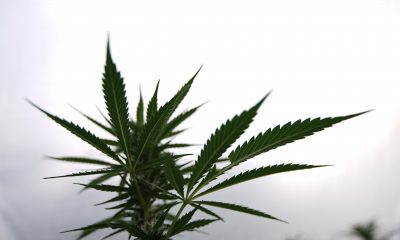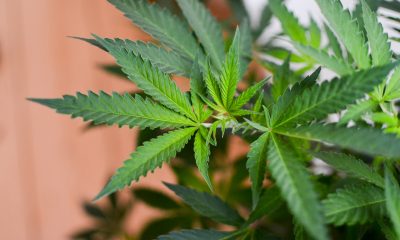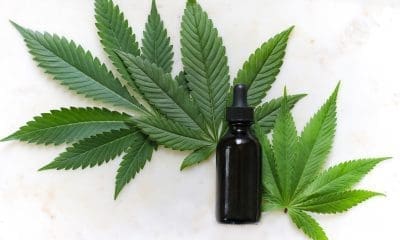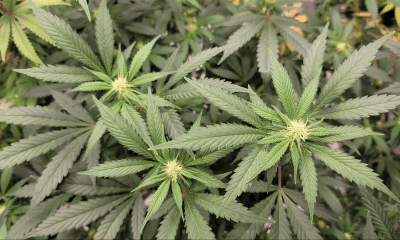Politics
California Lawmakers Approve Bill To Legalize Psychedelics Possession In Committee
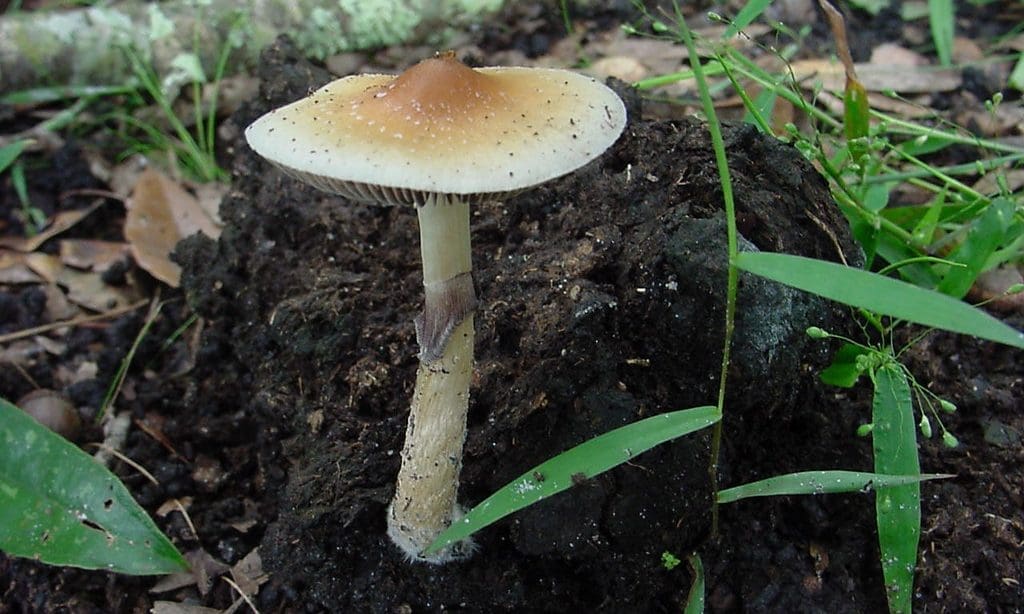
A California Assembly committee on Tuesday approved a Senate-passed bill to legalize possession of psychedelics, clearing its first major hurdle in the chamber.
The Assembly Public Safety Committee advanced the legislation, sponsored by Sen. Scott Wiener (D), in a 5-3 vote.
This comes one day after the senator held a rally with military veterans, law enforcement and health officials to build support for the proposal.
SB 519 would remove criminal penalties for possessing or sharing numerous psychedelics—including psilocybin mushrooms, DMT, ibogaine, LSD and MDMA—for adults 21 and older.
The sponsor supported a committee amendment that removed ketamine from the list of psychedelics included in the reform. That’s in addition to a series of technical revisions that were made to the legislation.
The full Senate approved the bill earlier this month, and it still has two more Assembly panel stops—the Public Health and Appropriations Committees—before moving to the floor and then, potentially, to the governor’s desk.
“Under SB 519, we will no longer arrest people and incarcerate them for the simple personal possession of psychedelics for personal or shared use,” Wiener told the committee on Tuesday. “That’s really the question here: Do we believe that we should be arresting someone because they possess psychedelics for personal use? I don’t think we should. Frankly, I think most people don’t think we should be doing that.”
The Assembly Public Safety Committee just passed our legislation to decriminalize possession of psychedelics in California (#SB519).
Another step toward ending the failed & racist War on Drugs & expanding access to mental health & addiction treatment.
Thank you, colleagues!
— Senator Scott Wiener (@Scott_Wiener) June 29, 2021
Wiener has described its prospects going forward as “very challenging,” but he made the case at Monday’s press event that it is a necessary policy change to advance mental health reform and end criminalization.
Under the measure, the state Department of Public Health would be required to establish a working group “to study and make recommendations regarding possible regulatory systems that California could adopt to promote safe and equitable access to certain substances in permitted legal contexts.” Those recommendations would be due by January 1, 2024.
For psilocybin specifically, the legislation would repeal provisions in California statute that prohibit the cultivation or transportation of “any spores or mycelium capable of producing mushrooms or other material” that contain the psychoactive ingredient.
The bill originally included record sealing and resentencing provisions for people previously convicted of psychedelics possession offenses, but that language was removed in its last committee stop prior to the Senate floor vote as part of an amendment from the sponsor.
—
Marijuana Moment is already tracking more than 1,100 cannabis, psychedelics and drug policy bills in state legislatures and Congress this year. Patreon supporters pledging at least $25/month get access to our interactive maps, charts and hearing calendar so they don’t miss any developments.
![]()
Learn more about our marijuana bill tracker and become a supporter on Patreon to get access.
—
Wiener said the reasoning behind that deletion was that the policy “ended up generating a huge price tag” based on a fiscal analysis, but it could be addressed in separate legislation if the main bill passes.
Speaking at an event hosted by the Psychedelic and Entheogen Academic Council (PEAC) this month, the senator said advancing the legislation would be first step toward decriminalizing all currently illicit drugs. He reiterated that point on Monday, stating that “this bill is one step in the direction of ending the failed war on drugs.”
He reiterated that position on Tuesday, saying he’s “of the view that the war on drugs in general has been a failure.”
“We’ve been trying to arrest our way out of drug use and addiction for 50 years, and it hasn’t improved anything whatsoever,” Wiener said. “People are still using. People are still getting addicted—not to psychedelics, because these are generally not addictive, but to other drugs. And all we’ve done is fill up our prison with drug crimes, and we’re not safer and we’ve just spent a whole lot of money.”
While the bill is being described by lawmakers and advocates as simple “decriminalization,” the official legislative analysis of the proposal states that it would “make lawful” the personal possession and social sharing of these substances.
If the bill does ultimately clear the Assembly, it still remains unclear whether Gov. Gavin Newsom (D) would sign it—though the governor has long been an outspoken critic of the war on drugs.
Wiener backed the new ketamine-related amendment in an effort to build support for the legislation.
“There are disagreements within the psychedelic world on it,” the senator said earlier this month in a meeting with activists. “My view as you keep things in until you have to make a give, and that’s one that we could potentially give on. You don’t want to spontaneously give on things without getting some ability to move the bill forward as a result.”
Mescaline, a psychoactive compound derived from peyote and other cacti, is another controversial psychedelic.
It was specifically excluded from the bill’s reform provisions in peyote-derived form, but the possession of the compound would be allowed if it comes from other plants such as “the Bolivian Torch Cactus, San Pedro Cactus, or Peruvian Torch Cactus.”
That decision on the peyote exclusion was informed by native groups who have strongly pushed back against decriminalizing the cacti for conservationist reasons and because of its sacred value for their communities.
Meanwhile, a group of California activists announced plans earlier this year to put an initiative to legalize the use and retail sale of psilocybin on the state’s 2022 ballot. That group, Decriminalize California, said that it would first work to convince lawmakers to pursue reform and then take the issue directly to the people if the legislature fails to act.
The psychedelics effort in the California legislature, which Wiener first previewed back in November, comes as activists are stepping up the push to enact psychedelics reform locally in cities in the state and across the country. The bill notes those efforts in an explanation of the proposal.
The Northampton, Massachusetts City Council passed a resolution in April to deprioritize enforcement of laws against the possession, use and distribution of a wide range of psychedelics such as psilocybin and ayahuasca. It’s the third city in the state to advance the policy change, following Somerville and Cambridge.
These are some of the latest iterations of a national psychedelics reform movement that’s spread rapidly since Denver became the first city to decriminalize psilocybin mushrooms in 2019.
Besides the cities in Massachusetts, four others—Oakland, Santa Cruz, Ann Arbor and Washington, D.C.—have also decriminalized possession of plant-and fungi-based psychedelics.
In Oregon, November’s election saw the passage of a historic initiatives to legalize psilocybin mushrooms for therapeutic purposes and more broadly decriminalize possession of all drugs.
The governor of Connecticut signed legislation this month that includes language requiring the state to carry out a study into the therapeutic potential of psilocybin mushrooms.
Texas also recently enacted a bill to require the state study the medical benefits of psychedelics for military veterans.
A New York lawmaker introduced a bill this month that would require the state to establish an institute to similarly research the medical value of psychedelics.
In Oakland, the first city where a city council voted to broadly deprioritize criminalization of entheogenic substances, lawmakers approved a follow-up resolution in December that calls for the policy change to be adopted statewide and for local jurisdictions to be allowed to permit healing ceremonies where people could use psychedelics.
After Ann Arbor legislators passed a decriminalization resolution last year, a county prosecutor recently announced that his office will not be pursuing charges over possessing entheogenic plants and fungi—“regardless of the amount at issue.”
The Aspen, Colorado City Council discussed the therapeutic potential of psychedelics like psilocybin and proposals to decriminalize such substances at a meeting last month. But members said, as it stands, enacting a reform would be more better handled at the state level while entheogens remain strictly federally controlled.
Seattle lawmakers also recently sent a letter to members of a local task force focused on the opioid overdose epidemic, imploring the group to investigate the therapeutic potential of psychedelics like ayahuasca and ibogaine in curbing addiction.
New Mexico Marijuana Legalization Law Officially Takes Effect
Image courtesy of Kristie Gianopulos.






